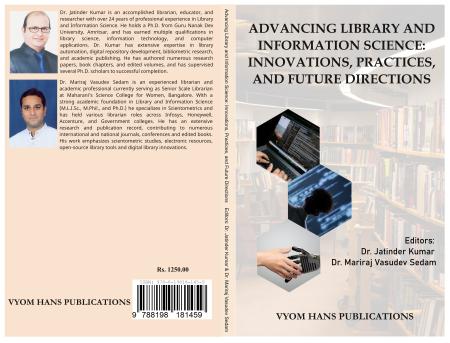ACTIVITY PATTERNS AND AWARENESS OF OPEN ACCESS RESOURCES AMONG ACADEMICS IN KARNATAKA: A CASE STUDY OF BANGALORE UNIVERSITY
Synopsis
The global Open Access (OA) movement has reshaped the landscape of academic publishing by providing free and unrestricted access to scholarly resources such as research papers, datasets, and journals. The idea behind OA is to make research findings available to all, irrespective of geographic location or institutional affiliation, thus promoting knowledge dissemination and enhancing academic collaboration. In India, Open Access has slowly gained traction, but its usage and awareness among academics vary across regions and institutions.
Bangalore University, one of the leading educational institutions in Karnataka, represents an interesting case for exploring the patterns of OA usage and awareness. Situated in an urban centre like Bengaluru, the university has access to better infrastructure, resources, and exposure to global academic trends. However, the degree to which academics in Bangalore University utilize OA resources and understand their benefits is yet to be fully understood. This case study aims to explore the activity patterns and awareness of OA resources among academics at Bangalore University, offering a deeper insight into the factors that influence OA engagement in Indian academic institutions.
Keywords: Open Access (OA), Academic Resources, Research Repositories, Open Access Journals, Academic Publishing, OA Adoption Barriers





